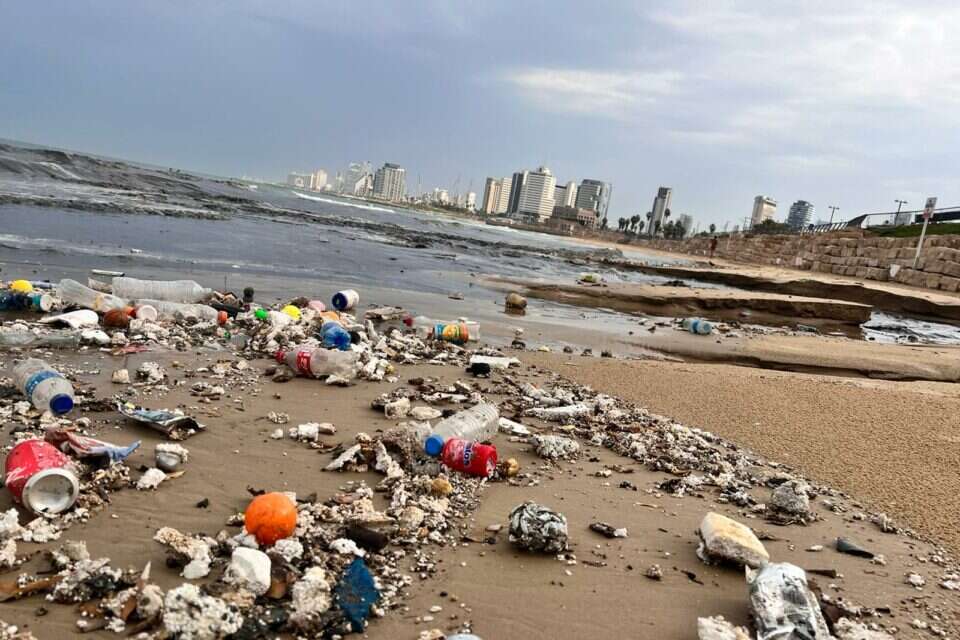The Ministry of Environmental Protection published a study today (Tuesday) examining the sources of waste on Israel's beaches. The study, conducted over a period of two years, was conducted by Dr. Galia Pasternak of the University of Haifa, for the Ministry of Environmental Protection's Clean Coast program, as part of a call for proposals by the Office of the Ministry's Chief Scientist, Prof. Noga Kronfeld-Schor.
Tar pollution at Nitzanim Beach (archive) // Photo: The Green Police of the Ministry of Environmental Protection
As part of the study, waste surveys were carried out on the beaches of all the coastal authorities of the State of Israel in the Mediterranean Sea and the Gulf of Aqaba for two years. Its purpose was to examine the sources of waste in the various coastal authorities in order to understand the extent of the impact of the location of the beach on the type and extent of marine waste, and to examine the extent of waste coming from the water.
Marine waste, especially plastic waste, has become an environmental problem that threatens marine and coastal ecosystems, and has a negative impact on the economy and health. In recent years, findings indicate rapidly increasing amounts of plastic waste in the sea, due to the increasing production of plastic. In 2021, global plastic production was estimated at 390 million tons per year.
99% of the waste in Eilat - comes from the beach
A total of 45,024 items of waste were counted, of which 41,992 were on the shores of the Mediterranean Sea and 3,032 on the shores of the Gulf of Aqaba. According to the study, about 16 percent of the waste found on the Mediterranean coast came from the sea and about 84 percent from land. In Eilat, 99 percent of the waste came from the beach and one percent from the sea. The most common item of waste on beaches are cigarette butts, which account for 26 percent of all debris on beaches.
Plastic - the second pollutant on beaches, Photo: Getty Images/iStockphoto
The next most common item after cigarette butts was disposable utensils, which constituted about 18% of all waste on the Mediterranean beaches and 3% of the waste on Eilat's beaches.
Other key items found: tent accessories, food packaging and wrappers, bottle caps, plastic bags, styrofoam pieces, plastic bottles.
Minister of Environmental Protection, Idit Silman: "The results of the study show the importance of the Clean Coast program and its success as an influential factor in reducing the presence of plastic waste on Israel's beaches."
Wrong? We'll fix it! If you find a mistake in the article, please share with us

